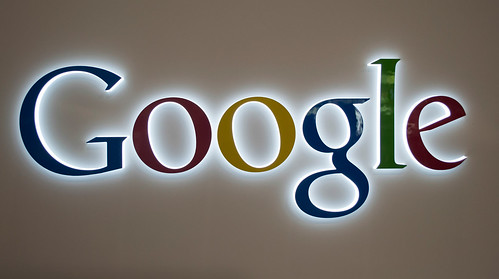
Google (NASDAQ: GOOG.US) reported a 12% increase in quarterly revenue for the third quarter after US markets closed last night, which prompted the shares to jump to a record high of over $961 in after-hours trading.
The search giant’s revenue is primarily driven by its online and mobile search advertising business — it accounted for 92% of total revenue last quarter — which reported a 19% increase in the quarter. This growth was down from 20% last quarter and 22% in the first quarter of the year, but investors didn’t seem too upset about that.
One plus one
Interestingly, Google reported its cost-per-click, or how much the company gets paid every time someone clicks on an ad, declined 8% from a year ago — the fastest decline this year. Analysts have been quite concerned about the decline in cost-per-click in the past, so the market’s reaction is a bit of surprise.
Perhaps they finally realised that revenue is a result of the combination of how much each ad earns and how many ads get clicked on because paid clicks were up 26% in the quarter — the fastest growth rate since the third quarter of 2012 when its came it at 33%.
It would seem that investors are being convinced that Google has an answer for the dramatic shift to mobile internet browsing and won’t see its market position eroded as more and more people do their searching on their phones and tablets as opposed to their desktop computers.
On the flipside
Of course, not all was sunny in California as Motorola — which Google acquired in early 2012 for $12.5 billion — continued to drag on results. As a phone manufacturer, Motorola’s profitability was never going to match Google’s, but even after several thousand jobs have been cut and Motorola’s set-top box division was sold off the division continues to report losses — $317 million this quarter.
Many investors have questioned why Google made this acquisition. Some point to Motorola’s portfolio of patents and the increasingly frequent legal battles in the consumer electronics space. Others felt it was an effort to create a better relationship between Google’s Android software and mobile devices — an imitation of Apple’s model.
Whatever the case, it remains to be seen if Motorola can start contributing to Google’s success — or at least stop hurting profitability.
To the future
Google’s co-founder and CEO Larry Page is famous for his lofty visions of what Google’s technology can bring to the world, but for now the company remains an online ad-selling beast. With quarterly revenue of $14.9 billion converting into $5.1 billion in operating cash flow, Google is currently selling (after taking the after-hours pop into consideration) for almost 18 times operating cash flow.
The shares are priced for growth, but so far Google has been able to deliver and it looks like the spectre of mobile making the company obsolete is retreating — for now. While the shares don’t look like a bargain, if you believe in Google’s ability to continue to grow and adapt with new technologies they may be worth a second look.






